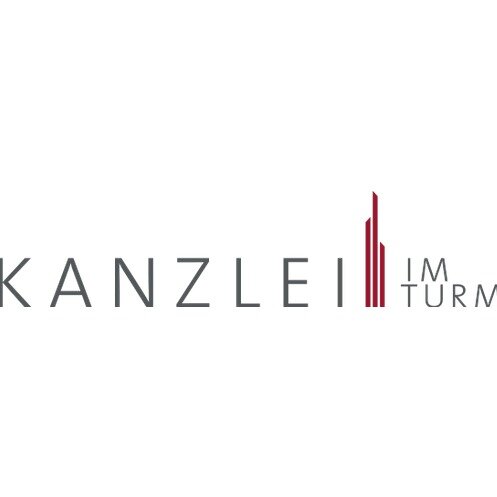Best Work Permit Lawyers in Winterthur
Share your needs with us, get contacted by law firms.
Free. Takes 2 min.
List of the best lawyers in Winterthur, Switzerland
About Work Permit Law in Winterthur, Switzerland
Switzerland is known for its robust economy and diverse job market, attracting a significant number of foreign workers each year. Winterthur, as one of Switzerland’s larger cities, also adheres to national work permit regulations that govern the employment of foreign nationals. Generally, the issuance of work permits in Switzerland is contingent on factors such as the applicant’s nationality, skills, qualifications, and local labor market conditions. It is crucial to understand the specific requirements and processes to ensure compliance and successful application.
Why You May Need a Lawyer
The process of obtaining a work permit in Winterthur involves numerous legal and bureaucratic steps. Here are some situations where legal assistance may be necessary:
- Complex Applications: Applying for a work permit involves various documents and evidence. A lawyer can help ensure that your application is complete and accurate.
- Rejections and Appeals: If your application is rejected, a legal professional can guide you through the appeals process to improve your chances of a favorable outcome.
- Changing Employment: If you change jobs or job roles, your work permit may need modification. Legal advice can facilitate a smooth transition.
- Legal Compliance: Lawyers can help you understand your rights and responsibilities under Swiss employment and immigration laws.
Local Laws Overview
In Winterthur, as in the rest of Switzerland, work permits are categorized based on the duration and type of work. The main types include:
- L Permits: Short-term work permits for engagements under one year.
- B Permits: Renewable permits for those with contracts lasting one year or longer.
- C Permits: Permanent residence permits typically for those who have lived in Switzerland for a particular period.
Swiss law prioritizes local and EU/EFTA nationals for job placements, meaning positions must often be advertised locally before being filled by non-EU nationals. Additionally, potential employers must demonstrate that they are unable to find suitable candidates locally before hiring non-EU workers.
Frequently Asked Questions
What types of work permits are available in Winterthur for non-EU nationals?
Non-EU nationals may obtain L, B, or even C permits depending on their specific circumstances like the length of stay, job position, and compliance with Swiss labor market requirements.
Do I need to speak German to work in Winterthur?
While not legally mandated, proficiency in German can significantly enhance your employment prospects, as many jobs require interaction with local clients or colleagues.
How long does it take to process a work permit?
Processing times vary but typically range from a few weeks to several months, depending on the permit type and the applicant's country of origin.
Can my work permit lead to permanent residency?
Yes, work permits like the B permit can eventually lead to a C permit, which grants permanent residency, provided certain conditions are met such as duration of stay and integration.
How do work permit quotas affect my application?
Switzerland has annual quotas for certain permits, which may impact availability. Applying early in the quota cycle often improves chances of obtaining a permit.
Can I change employers with my existing work permit?
Changing employers is generally possible but may require modifications or reissuance of your work permit. It is advisable to consult legal assistance to address the specific conditions that apply.
What should I do if my work permit application is rejected?
If your application is rejected, you may appeal the decision. Legal guidance can significantly improve your chances of a successful appeal by ensuring all requirements and documentation are met.
What are my rights as a work permit holder in Winterthur?
Work permit holders in Winterthur have rights similar to those of Swiss nationals, including labor rights, protection against unfair dismissal, and social benefits, subject to permit conditions.
Is my spouse eligible to work if they accompany me?
Spouses of B and C permit holders are generally allowed to work, whereas L permit holders' spouses might face more restrictions. Verification with local authorities is recommended for clarity.
Do self-employed individuals require a different type of permit?
Yes, self-employment typically requires a different permit application process and may involve proving the viability and economic interest of the business to the Swiss economy.
Additional Resources
For further assistance, consider reaching out to:
- The Swiss State Secretariat for Migration (SEM) for information on rules, procedures, and permits.
- The local migration office in Winterthur for guidance specific to regional procedures.
- Legal professionals specializing in immigration law for tailored advice.
Next Steps
If you decide that legal assistance is necessary for your work permit application, consider the following steps:
- Consultation: Schedule consultations with specialized work permit lawyers to discuss your case.
- Documentation: Gather all required documents and prepare questions or issues you wish to address during initial consultations.
- Legal Representation: Retain a lawyer who best suits your needs to help navigate the application process or address any complications efficiently.
Proper legal guidance can greatly enhance the likelihood of securing a work permit and ensuring smooth employment transition in Winterthur, Switzerland.
Lawzana helps you find the best lawyers and law firms in Winterthur through a curated and pre-screened list of qualified legal professionals. Our platform offers rankings and detailed profiles of attorneys and law firms, allowing you to compare based on practice areas, including Work Permit, experience, and client feedback.
Each profile includes a description of the firm's areas of practice, client reviews, team members and partners, year of establishment, spoken languages, office locations, contact information, social media presence, and any published articles or resources. Most firms on our platform speak English and are experienced in both local and international legal matters.
Get a quote from top-rated law firms in Winterthur, Switzerland — quickly, securely, and without unnecessary hassle.
Disclaimer:
The information provided on this page is for general informational purposes only and does not constitute legal advice. While we strive to ensure the accuracy and relevance of the content, legal information may change over time, and interpretations of the law can vary. You should always consult with a qualified legal professional for advice specific to your situation.
We disclaim all liability for actions taken or not taken based on the content of this page. If you believe any information is incorrect or outdated, please contact us, and we will review and update it where appropriate.












